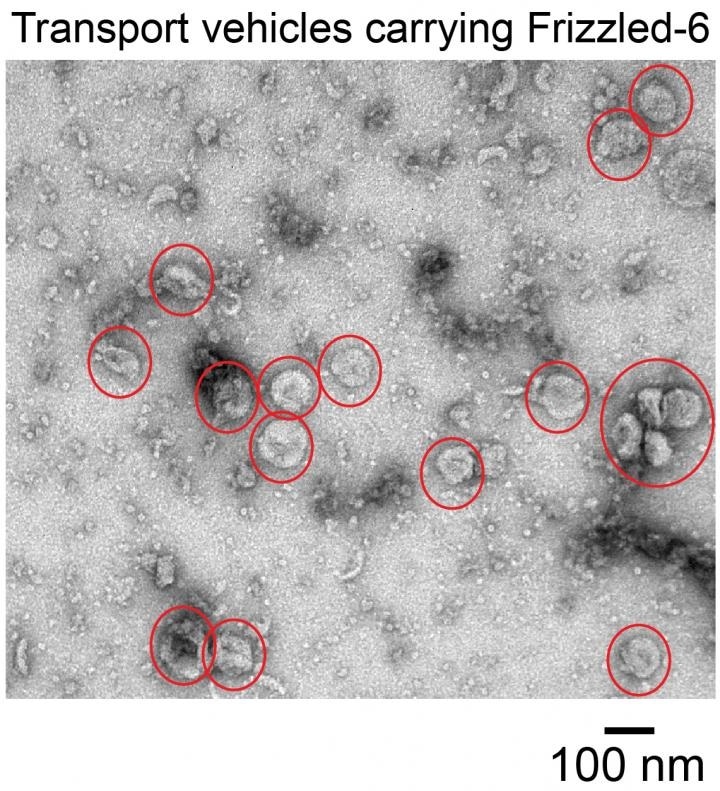Planar cell polarity (PCP) is a kind of process where polarization of the epithelial tissues occurs inside the plane of the epithelium. This process plays a significant role in the development and function of organs.

Transport vehicles carrying Frizzled-6. Image Credit: Hong Kong University of Science and Technology.
PCP defects are linked with various human diseases, such as neurological disorders, cancer metastasis, congenital heart disease, and skeletal dysplasias.
An evolutionarily conserved group of signaling proteins regulates the establishment of PCP. After a majority of these PCP proteins are synthesized, they are transported along the secretory transport route to the surface of the cell where they execute their physiological functions. But the molecular mechanisms that control the transport of PCP proteins are yet to be fully understood.
In the secretory transport route, transmembrane PCP proteins that are newly synthesized are initially translocated into an intracellular organelle, known as endoplasmic reticulum (ER), where they undergo folding and modifications.
Such proteins are subsequently integrated into transport vesicles that, in turn, are mediated by the COPII machinery. Such transport vesicles serve as vehicles to transport their cargo proteins to the following station—the Golgi apparatus—on the way to the cell surface. The above video describes the surface delivery of newly produced epidermal growth factors receptor (EGFR) in this pathway.
Professor Guo and his colleagues identified that a polybasic motif situated on Frizzled-6 communicates directly with the E63 and E62 residues on a crucial element involved in the COPII machinery, called Sar1A. The interaction of this novel protein is crucial for exporting Frizzled-6 out of the ER—the initial step in the secretory transport route.
The research also indicates that association of CELSR—another PCP protein—with Frizzled-6 is significant, allowing efficient delivery of Frizzled-6 to the surface of the cell and thereby offering quality-control mechanism that guarantees suitable stoichiometry of both these PCP proteins at the surface of the cell.
Such studies provide a new understanding of the molecular machinery that governs the ER export of Frizzled-6. Moreover, activation of the PCP pathway plays crucial roles in cancer metastasis. At present, no effective therapeutic approach is available to particularly downregulate the PCP pathway.
The PCP proteins must be situated on the surface of the cell to control PCP. The study conducted by Professor Guo offers significant data that can guide researchers on the rational design of inhibitors to inhibit the interaction between SAR1A and Frizzled6 and thus suppress the surface delivery process. This presents a novel therapeutic approach to downregulate PCP signaling for the treatment of cancer.
Source:
Journal reference:
Tang, X., et al. (2020) Molecular mechanisms that regulate export of the planar cell-polarity protein Frizzled-6 out of the endoplasmic reticulum. Journal of Biological Chemistry. doi.org/10.1074/jbc.RA120.012835.